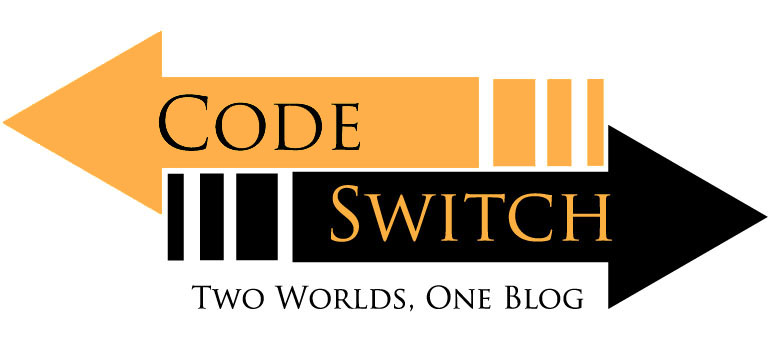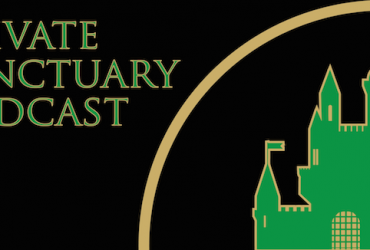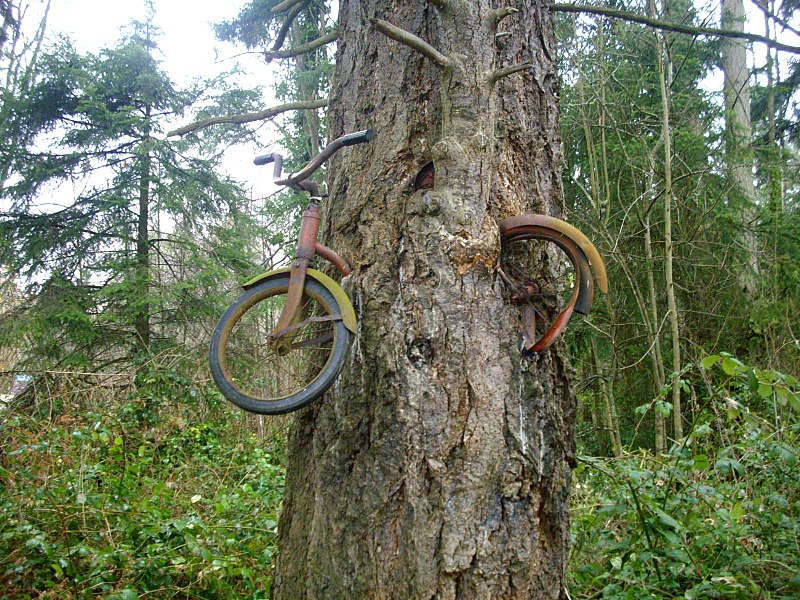“I go find the town blacksmith”, “I find the nearest alchemist shop”, “We head to the nearest Tavern”. As a Game Master I hear all of these quips from adventurers looking to make purchases or sell valuable goods. It’s a fantasy troupe that every town has one or two of a given business, or that only one to two are worth going to. It’s a rough but functional system that allows players to easily ask for a good or service with its purchase limit backed up by tables and calculations in the Pathfinder Game Mastery Guide.
Golarion does its best to be a globe spanning game with regions interconnected in dozens of ways. The Pathfinder Society line of products even has a mercantile trade faction called The Exchange whose goal is to conglomerate all businesses of worth into its holdings. Golarion puts such an emphasis on the interconnectedness of its world that it bothers me that there seems to be little to no franchising in the world.
Franchising?
Yes, Franchising. The business model where investors buy businesses that are separate but mostly identical to a parent business. Every McDonald’s provides the same basic menu, buys from the same suppliers, has the same training practices, and strives to provide the same, excellent consistent service throughout all its restaurants. I don’t have the time to diss McDonald’s, but the idea isn’t limited to food. Department Stores, Hardware Stores, Pest Control, Carpentry, almost every business has a franchise model.
Why are you Wasting my Time Talking About Franchising? I Want to Fight Dragons!
Maybe some framing of this idea may help a bit, because I believe it’s a concept that can help deepen existing role-playing worlds and I’m fairly sure it already exists, at least as a joke, in your fantasy worlds.
At a local gaming store about a year ago we spied the miniatures box set “The Rusty Dragon”. It’s unusual font and our tables distance morphed “Rusty” into “Busty”. We had a good laugh about this imaginary tavern called “The Busty Dragon” and went about our game. The next week a player chose to visit a Busty Dragon while searching for information. This went on for a few weeks before every town with a population over 10k had a Busty Dragon Tavern. As this was society, a player who belonged to the Exchange faction eventually tried to influence an NPC by offering them wealth and influence if they sold their noodle recipe to the Busty Dragon. The player passed the influence check and got some neat rewards.
If the game world includes a globe-spanning faction who seeks to bring all business under their umbrella, why wouldn’t they look into franchising? It seems asinine. The business model of franchising is relatively new, but the concept isn’t. People in history traveled the world selling branded goods. Often they were branded by region of origin, like China dishes. Other times they were branded by famous people like the Franklin Bifocal or Gutenberg Press. The Crimean nurse Mary Seacole ran The British Hotel in Balaclava at the same time her family managed The British Hotel in Panama.
Adding franchises would also allow Game Masters to provide certain bonuses or detriments based on their players shopping habits. A certain store may sell weapons with slightly higher durability at market value or offer a reward program. You could also create “bad” chains that offer cheaper prices but lower quality items.
Franchises Sound Fine, but how Would I Implement Them?
I’m glad you asked! To introduce them to players, you could have town criers rave about their existence and offer flyers. You could also have players run across wrappers or merchandise made by the franchises to get players to explore them. You don’t need special shopkeeper NPC’s, the NPCs from the NPC Codex and Game Mastery Guide should work fine, but it doesn’t hurt to have a wizard manage a magic franchise or an alchemist manage a potion franchise. Below I’m going to list a few example franchises to get your game started. You can use whatever information you want, you don’t have to use the boon or cons, but they serve to differentiate the franchise from “the nearest alchemist shop”.
Listings
The Busty Dragon Tavern – Chain of Taverns
A chain of taverns found throughout the Inner Sea with additional convenient locations in Tian Xia and Arcadia. Most places with a population over 10,000 have a Busty Dragon and if they don’t, it’s probably under construction right now. Famous for their deep fried lizard legs smothered in a smokey, piquant garlic sauce.
Boon: A Busty Dragon acts like a Pathfinder Society Lodge in that it’s a safe place to rest with no risk of intrusion, for a price.
Madge’s Old Fashioned Noodles – Noodle Cart Chain
Mad Madges’ noodles were only recently discovered and thrust to the fame they rightfully deserve. Madge sold her recipes to an intrepid member of the Exchange who has turned her ideas into hundreds of noodle carts throughout the Inner Sea.
Boon: A bowl of Madges’ Noodles eaten for bed removes an additional point of ability damage if any was taken during the day.
Torags’ Blessing – Weaponsmith
Torags’ Blessing was founded by a cleric just looking to make enough coin to keep his local church afloat. The cleric chose to remain anonymous but to engrave the name of his god into every weapon he crafted. The clerics weapons caught the eye of a cleric of Abadar who offered to sell his weapons far and wide and the cleric of Torag agreed. Weapons from Torag’s Blessing are known for their sturdiness and reliability.
Boon: A metal weapon produced by Torags’ Blessing weighs 10% more, but has an additional point of hardness over the generic versions of the weapon.
Chop Shop – Weaponsmith
A butcher from Tian Xia became famous for his strength and finesse with his meat cleaver when chopping meat. Eventually people sought out the creator of his cleaver and now the cleavers creators have expanded their forges to create blades of all shapes and sizes.
Boon: Silver weapons bought from the Chop Shop do not carry the -1 damage penalty that normal silver weapons incur.
Absalom Fashion – Clothing
A series of fashionable boutiques whose seasonal wares are curated by the well to do of the City at the Center of the World. It’s so popular that the wealthy of lands who revile Absalom turn a blind eye to the chain’s name and claim to fame.
Boon: A Courtier’s Outfit or Nobles outfit bought from Absalom Fashion cost 20g more, but doesn’t require jewelry to blend in seamlessly with the wealthy, however the Nobles outfit still requires a signet ring to complete the outfit. This bonus lasts for a season, after which the next seasons line gains the benefits, while the previous season loses theirs.
Bulettes – Armorer
While Bulettes’ does carry Bulette Plate, its name is more reflective of the Bulettes toughness and resistance to harm. This mental brand-linkage is good as the armor from Bulettes is bulkier and heavier to move around in that most.
Boon: Metal armor bought from Bulettes has a +1 ACP, but cost 5% less than the market price of the armor.
Potions and Pipettes – Alchemist Shop
Buying in bulk makes Potions and Pipettes cheaper than the competition. A group of Drumish alchemists grew tired of the outstanding prices for mundane components and bought multitudes of different producers and manufacturers of arcane and divine reagents. Once they formed their conglomerate they created the chain Potions and Pipettes to great acclaim. It’s said they hope to earn enough to buy the nation of Thuvia to acquire and monopolize the Sun Orchid Elixir Trade.
Boon: All 1st level potions and alchemical weapons cheaper than 50g are sold at a 5% reduction of market price. These same items also carry a 2% failure rate giving no benefit. This can be identified with a spellcraft check equal to 10 + the base DC to identify the item. The store offers full-refunds within one week for any dud item, but only gives store credit.
I hope this gives you some fuel for your Pathfinder tables. The concept sounds a little silly, but in my experience with it, it helps make the world seem more interconnected. I’m a huge fan of the Fantasy Costco interludes in the podcast The Adventure Zone. It’s a bit too literal for Golarion or my personal liking, but in their game it makes perfect sense. Do any of your tables or worlds have any franchises or chains? Hit me up in the comments below, I’d love to hear em, especially if one of your PC’s started them.







If I franchised anything in my game, it would be Cut-Me-Own-Throat-Dibbler.
Just saying.
One of my players did something like this. We’re playing Runelords and he and a local brewmeister developed a pickle brine liquor after being inspired by the keg of pickles in Thistletop. After some invested time and gold and the local taverns buying kegs of the liquor he took a wagon load to Magnimar and sold it to some taverns there since the PCs were there already (book 2). Now his ‘Bukanahn’s Brine’ is rapidly becoming popular and demand is overwhelming supply.
That’s awesome? Whats the description he came up with? Is it like a pickleback shot?
Yes, it was a big joke the burly fighter carried around this keg of pickles while exploring Thistletop and was eating them constantly. Then he got to drinking the brine and someone mentioned pickleback shots. He asked about investing in making a pickle type liquor and it went from there…
If you are interested in topic: earn online without investment jargon dictionary
– you should read about Bucksflooder first